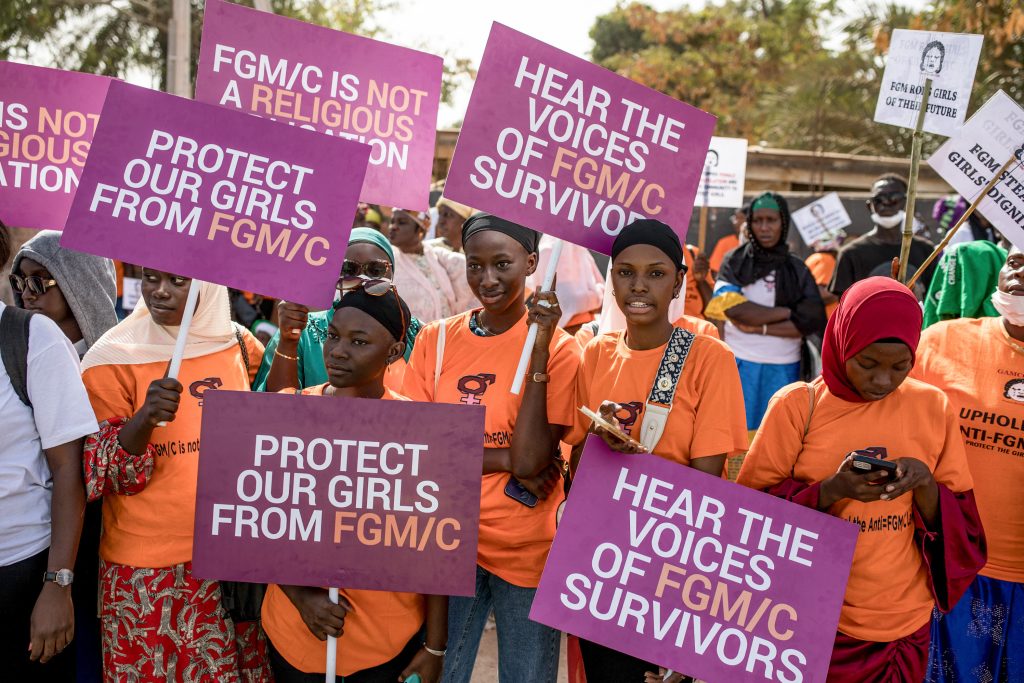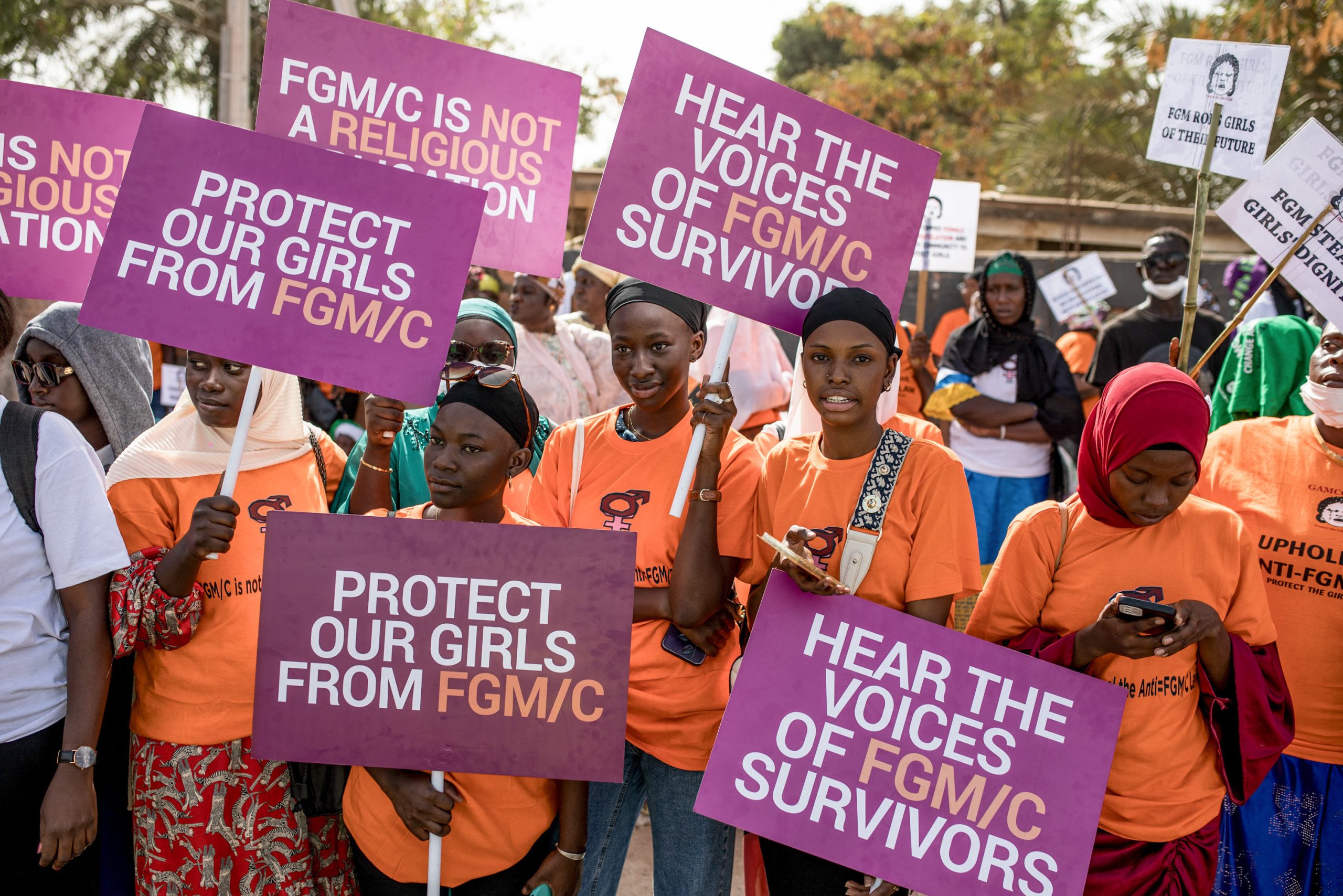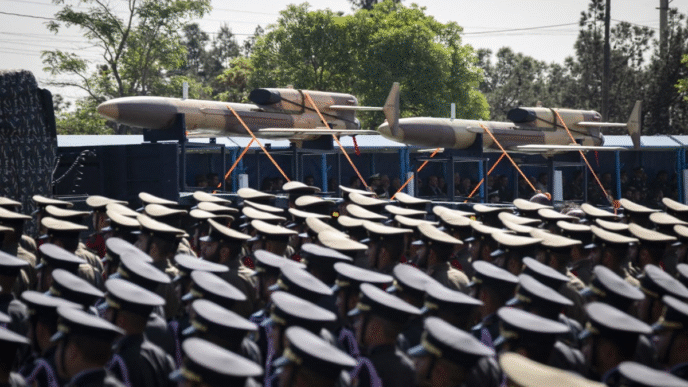The World Health Organisation (WHO) has called for a global code of conduct to prevent health workers from performing female genital mutilation (FGM).
In new guidelines released on Monday, the UN health agency highlighted the critical role that medical professionals play in detecting FGM and supporting its survivors, but also pointed out that health workers in some regions have been involved in performing the procedure themselves.
“Female genital mutilation is a severe violation of girls’ rights and critically endangers their health,” stated Pascale Allotey, head of WHO’s sexual and reproductive health and research division.
The agency emphasised that health workers should act as agents for change, not as perpetrators of this harmful practice.

Credit: MUHAMADOU BITTAYE / AFP
FGM, which involves partial or total removal of the female external genitalia, can result in severe health consequences such as infections, infertility, and complications during childbirth.
An estimated 230 million girls and women worldwide have undergone FGM, a practice that is typically carried out on young girls before puberty.
Despite significant efforts to reduce FGM, WHO pointed out that it remains prevalent in approximately 30 countries, with around four million girls still at risk each year.
The medicalisation of FGM, where health professionals perform the procedure, poses a risk of “unintentionally legitimising” the practice, undermining global efforts to eliminate it.
The WHO’s new guidelines advocate for professional codes of conduct that explicitly forbid health workers from performing FGM and encourage their involvement in prevention through training and advocacy.
Additionally, the guidelines outline clinical recommendations to ensure that survivors receive the necessary medical care, including mental health support and surgical repairs when required.


 Trending
Trending 




